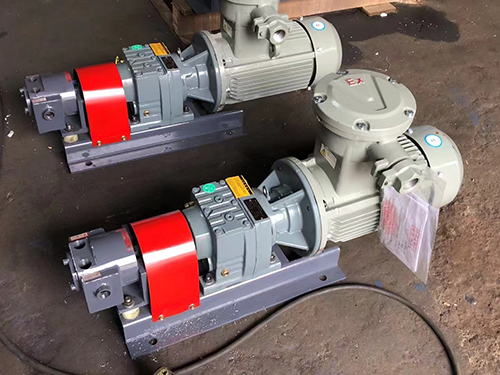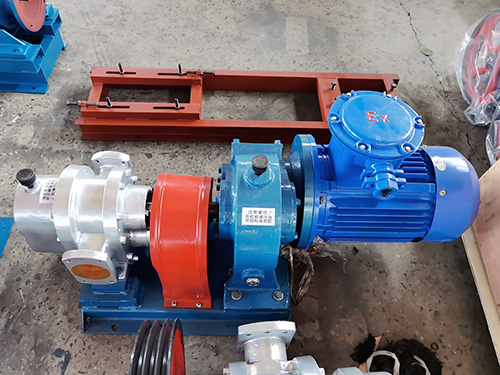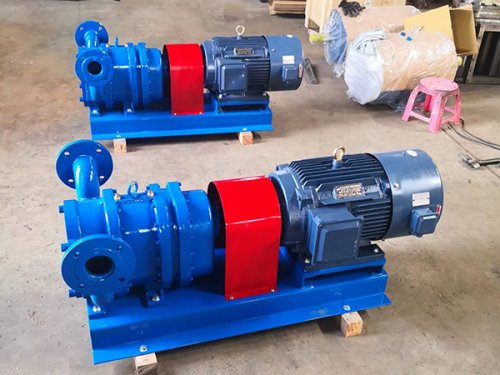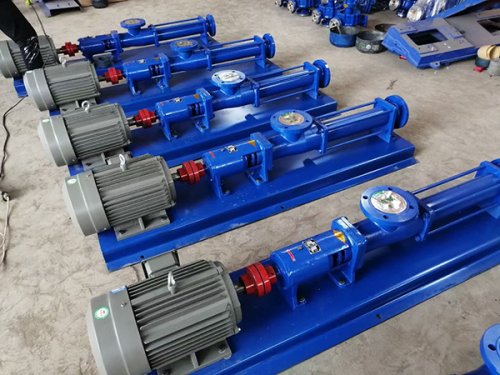Gear lubrication pump failure in hydraulic system
Release time:2022-10-06 14:10:55 Author:航源泵业 Hits:170
CB gear lubrication pumps are commonly used in hydraulic systems of agricultural machinery. After using the gear lubrication pump for a period of time, its performance will decline. Investigation shows that the main form of damage to the gear lubrication pump is uniform wear and scratches on the shaft sleeve, pump housing, and gear. The uniform wear amount is generally between 0.02-0.50mm, and the scratch scale is generally between 0.05-0.50mm. Due to agricultural restrictions, it is urgent to provide attentive service in a short period of time after damage, and it is also necessary to consider the secondary service life, maintenance cost, and on-site operability of the repaired gear lubrication pump. This article introduces arc spraying and adhesive coating techniques in the method of providing attentive service with suitable speed
Arc spraying attentive service technology for gear lubrication pump
1. Principle and characteristics of arc spraying
Arc spraying technology has developed rapidly in materials, equipment, and applications in the past 20 years. Its working principle is to use two sprayed metal wires as melting electrodes, which are driven by an electric motor at a variable speed. A short circuit is generated at the intersection of the nozzle to trigger an arc and melt, and compressed air is used to atomize into particles and spray them at high speed onto the pre treated working surface.
, Form a coating. It is a spraying method with good spraying efficiency, good bonding strength, and good coating quality. It has the advantages of good energy utilization, low equipment investment and usage costs, simple equipment, convenient and flexible operation, easy on-site construction, and safety2. Arc spraying repair process for gear lubrication pump
When the uniform wear and scratches on the inner hole of the shaft sleeve, the outer circle of the shaft sleeve, the gear shaft and pump housing are between 0.02-0.20mm, it is advisable to use a arc spraying repair process with good hardness, strong bonding force with the part body, and strong force.
. The process of arc spraying: pre-treatment of the working surface → preheating → spraying of the bonding layer → spraying of the working layer → cooling → coating processing In the spraying process, it is required that the workpiece has no oil stains or rust, the surface is rough and uniform, the preheating temperature is appropriate, the bottom layer is uniformly and firmly bonded, the working layer is smooth and flat, the material particles are melted and bonded well, and the performance and corrosion resistance are good. The quality of the sprayed layer is closely related to the surface treatment method and spraying process of the workpiece. Therefore, selecting the appropriate surface treatment method and spraying process is important. In addition, during the spraying and spraying process, thin iron or copper sheets should be used to tie the non spraying parts adjacent to the coated surface⑴ Surface pretreatment of workpieces
The bonding strength between the coating and the basic substrate is related to the cleanliness and roughness of the substrate.
. Before spraying, pre-treatment such as cleaning, degreasing, and surface roughness on the basic surface is an important process in the spraying process. Firstly, the spraying part should be degreased with gasoline and acetone, and the fatigue layer and oxide layer should be removed with a file, fine sandpaper, and oilstone to expose their metallic color. Then, roughening treatment is carried out, which can provide surface compressive stress, increase the bonding area between the coating and the substrate, purify the surface, reduce the stress during coating cooling, and ease the internal stress of the coating, thus facilitating the increase of bonding force. Sandblasting is a commonly used roughening process, with sharp and hard sand particles being preferred. Quartz sand, diamond sand, etc. can be used. The rough fresh surface is highly susceptible to oxidation or environmental pollution, so it should be sprayed in a timely manner. If left for more than 4 hours, it should be re roughened⑵ Surface preheating treatment
The temperature difference between the coating and the substrate surface can cause shrinkage stress in the coating, leading to coating cracking and peeling.
. Preheating of the substrate surface can reduce and prevent the aforementioned adverse effects. However, the preheating temperature should not be too high to avoid causing surface oxidation of the substrate and affecting the bonding strength between the coating and the substrate surface. The preheating temperature is generally 80-90 ℃, and is usually completed with a neutral flame⑶ Spray bonding bottom layer
Before spraying the working coating, a thin layer of metal is sprayed in advance to provide a clean and rough surface for subsequent coatings, thereby improving the bonding strength and shear strength between the coating and the substrate.
. The bottom layer material for bonding is generally made of chromium iron nickel alloyMORE
-
What is the difference between a cam rotor pump and a gear pump?
2022-12-16
-
Precautions and performance characteristics when using stainless steel gear pumps
2022-10-06
-
Installation skills for sealing components of KCB gear pump
2022-10-06
-
The Application of YCB Stainless Steel Arc Gear Pump
2022-10-06
-
Issues to be paid attention to during installation, use, and debugging of YCB arc gear pump
2022-10-06













